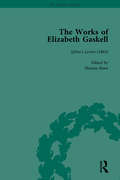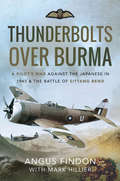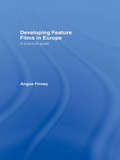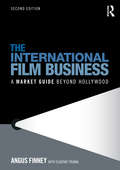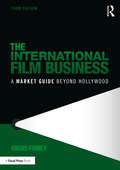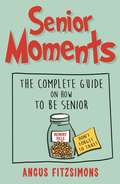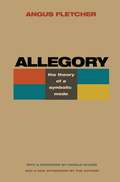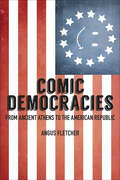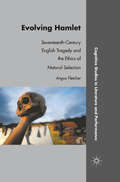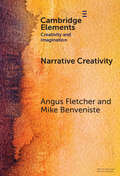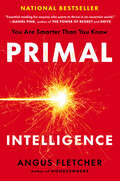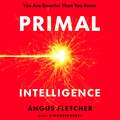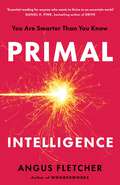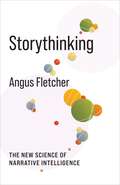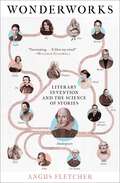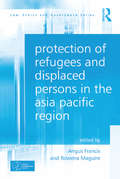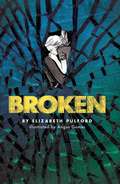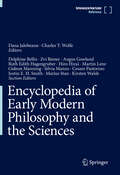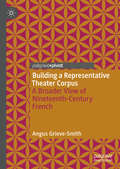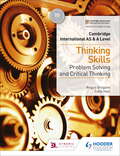- Table View
- List View
The Works of Elizabeth Gaskell, Part II vol 9 (The\pickering Masters Ser.)
by Joanne Shattock Angus EassonFeatures Elizabeth Gaskell's work. This work brings together her journalism, her shorter fiction, which was published in various collections during her lifetime, her early personal writing, including a diary written between 1835 and 1838 when she was a young mother, her five full-length novels and "The Life of Charlotte Bronte".
Thunderbolts over Burma: A Pilot's War Against the Japanese in 1945 & the Battle of Sittang Bend
by Mark Hillier Angus FindonA Royal Air Force pilot shares a riveting account of flying into combat against the Japanese in this WWII memoir supported by additional research.Though ill health initially kept Angus Findon from joining the Royal Air Force, he never gave up his dream. In 1945 he joined 34 Squadron and was soon flying Republic P-47 Thunderbolts in the last battles of the Second World War. He and his fellow Thunderbolt pilots often operating alongside RAF Spitfires, played a vital part in the Battle of the Sittang Bend.Allied intelligence knew of a planned Japanese break-out at Pegu. When the attack came, the Allies forces were ready. The RAF response was swift, destructive, and devastating for the Japanese. The Battle of Sittang Bend effectively brought the war in Burma to an end.In his remarkable memoir, Angus Findon details his journey from initial training to Allied victory. Supported by additional research by aviation historian Mark Hillier, Thunderbolts Over Burma graphically recounts what it was like to fly the Thunderbolt and operate in the harsh conditions of the Burmese airfields during the final months of the Second World War.
Developing Feature Films in Europe: A Practical Guide (Blueprint Ser.)
by Angus FinneyThe European film industry has by now lost most of its audience to American films; US productions take around eighty per cent of Europe's box-office revenues. There are many reasons for this imbalance, but one major difference between the European and the US film industries is easily identified: the Americans spend far more on development.Developing Feature Films in Europe is the first comprehensive study of this critical stage of the film-making process. Based on extensive research and interviews with more than seventy industry practitioners, it examines current funding practices, presents training initiatives for writers and producers, and highlights the potential for further improvements. Angus Finney has also compiled an invaluable directory of contacts, addresses and application procedures for public and private funding bodies throughout Europe.
The International Film Business: A Market Guide Beyond Hollywood
by Angus FinneyThe International Film Business examines the independent film sector as a business, and addresses the specific skills and knowledge it demands. It describes both the present state of the industry, the significant digital and social media developments that are continuing to take place, and what changes these might effect. The International Film Business: describes and analyses the present structure of the film industry as a business, with a specific focus on the film value chain discusses and analyses current digital technology and how it potentially may change the structure and opportunities offered by the industry in the future provides information and advice on the different business and management skills and strategies includes case studies on a variety of films including The Guard (2011), The King’s Speech (2010), The Best Exotic Marigold Hotel (2012), Cloverfield (2008), Pobby & Dingan (aka Opal Dream, 2005), Confessions of a Dangerous Mind (2002), The Reckoning (2002)and The Mother (2003), and company case studies on Pixar, Renaissance, Redbus and Zentropa. Further case studies on films that failed to go into production include Neil LaBute’s Vapor and Terry Gilliam’s Good Omens. Taking an entrepreneurial perspective on what future opportunities will be available to prepared and informed students and emerging practitioners, this text includes case studies that take students through the successes and failures of a variety of real film companies and projects and features exclusive interviews with leading practitioners in all sectors of the industry, from production to exhibition.
The International Film Business: A Market Guide Beyond Hollywood
by Angus FinneyExamining the independent film sector as a business on an international scale, author Angus Finney addresses the specific skills and knowledge required to successfully navigate the international film business. Finney describes and analyses the present structure of the film industry as a business, with a specific focus on the film (and entertainment) value chain and takes readers through the status of current digital technology, exploring ways in which this is changing the structure and opportunities offered by the industry in the future. The textbook provides information and advice on the different business and management skills and strategies that students and emerging practitioners will need to effectively engage with the industry in an international context. Case studies of films and TV, including Squid Game (2021), Parasite (2019), Game of Thrones (2011-2019) and The Best Exotic Marigold Hotel (2011), are supplemented by company case studies on Redbus, Renaissance, Pixar, with additional new chapters focusing on Netflix, TikTok and the Metaverse. This third edition of The International Film Business includes up-to-date information on the status of the international film industry during and post COVID-19; expanded content looking at the TV industry and streaming services; new case studies and dedicated sections on the Streaming Wars and the Chinese Film Industry and a new chapter looking at the changes in digital production in the context of the global and territorial film and TV industry. Written for students of Film Business and emerging practitioners, this book will take readers through the successes and failures of a variety of real film companies and projects and features exclusive interviews with leading practitioners in all sectors of the industry, from production to exhibition.
Senior Moments
by Angus FitzSimonsHave you had a Senior Moment yet? Maybe you know someone who's had a few? Check this list to know for sure: · You can remember being told the King was dead (George, not Elvis).· You still say 'colour television', and you watch television on a television.· Your home phone rings and you answer it. (And you still have a phone, not a 'landline'.)· You boast about 'doing it' three times a night and that's just getting up to pee.· You realise that your wardrobe has become ironic. You're not back in fashion, but you're hip. (And ironically, you now have an artificial hip).If you answered 'yes' to one or more of the above, congratulations! You are officially a Senior and this book is here to guide you through your best years (i.e. the past). Stroll, or maybe shuffle, down Nostalgia Avenue and bask in the glory of growing old disgracefully. (If you are a Young Person, this is the easiest Senior gift idea ever. You're welcome!)
Allegory: The Theory of a Symbolic Mode
by Angus FletcherAnyone who has ever said one thing and meant another has spoken in the mode of allegory. The allegorical expression of ideas pervades literature, art, music, religion, politics, business, and advertising. But how does allegory really work and how should we understand it? For more than forty years, Angus Fletcher's classic book has provided an answer that is still unsurpassed for its comprehensiveness, brilliance, and eloquence. With a preface by Harold Bloom and a substantial new afterword by the author, this edition reintroduces this essential text to a new generation of students and scholars of literature and art.Allegory puts forward a basic theory of allegory as a symbolic mode, shows how it expresses fundamental emotional and cognitive drives, and relates it to a wide variety of aesthetic devices. Revealing the immense richness of the allegorical tradition, the book demonstrates how allegory works in literature and art, as well as everyday speech, sales pitches, and religious and political appeals.In his new afterword, Fletcher documents the rise of a disturbing new type of allegory--allegory without ideas.
Comic Democracies: From Ancient Athens to the American Republic
by Angus FletcherThe forgotten history of comedy’s contribution to world democracy.For two thousand years, democratic authors treated comedy as a toolkit of rhetorical practices for encouraging problem-solving, pluralism, risk-taking, and other civic behaviors that increased minority participation in government. Over the past two centuries, this pragmatic approach to extending the franchise has gradually been displaced by more idealistic democratic philosophies that focus instead on promoting liberal principles and human rights. But in the wake of the recent "democracy recession" in the Middle East, the Third World, and the West itself, there has been renewed interest in finding practical sources of popular rule. Comic Democracies joins in the search by exploring the value of the old comic tools for growing democracy today.Drawing on new empirical research from the political and cognitive sciences, Angus Fletcher deftly analyzes the narrative elements of two dozen stage plays, novels, romances, histories, and operas written by such authors as Aristophanes, Menander, Plautus, Ariosto, Machiavelli, Cervantes, Shakespeare, Ben Jonson, William Congreve, John Gay, Henry Fielding, and Washington Irving. He unearths five comic techniques that were used to foster democratic behaviors in antiquity and the Renaissance, then traces the role of these techniques in Tom Paine’s Common Sense, Thomas Jefferson’s preamble to the Declaration of Independence, George Washington’s farewell address, Mercy Otis Warren’s federalist history of the Revolution, Frederick Douglass’s abolitionist orations, and other key documents that played a pivotal role in the development of the early American Republic.After recovering these lost chapters of our democratic past, Comic Democracies concludes with a draft for the future, using the old methods of comedy to envision a modern democracy rooted in the diversity, ingenuity, and power of popular art.
Comic Democracies: From Ancient Athens to the American Republic
by Angus Fletcher“Invites its readers to note the leaders and people who are willing and able to laugh, with and at themselves . . . Our political life may depend upon it.” —The Review of PoliticsFor two thousand years, democratic authors treated comedy as a toolkit of rhetorical practices for encouraging problem-solving, pluralism, risk-taking, and other civic behaviors that increased minority participation in government. Over the past two centuries, this pragmatic approach to extending the franchise has been displaced by more idealistic democratic philosophies that focus instead on promoting liberal principles and human rights. But in the wake of the recent “democracy recession” in the Middle East, the Third World, and the West itself, there has been renewed interest in finding practical sources of popular rule. Comic Democracies joins in the search by exploring the value of the old comic tools for growing democracy today.Drawing on new empirical research from the political and cognitive sciences, Angus Fletcher deftly analyzes the narrative elements of two dozen stage plays, novels, romances, histories, and operas written by such authors as Aristophanes, Menander, Plautus, Ariosto, Machiavelli, Cervantes, Shakespeare, Ben Jonson, William Congreve, John Gay, Henry Fielding, and Washington Irving. He unearths five comic techniques used to foster democratic behaviors in antiquity and the Renaissance, then traces the role of these techniques in Tom Paine’s Common Sense, Jefferson’s preamble to the Declaration of Independence, Washington’s farewell address, Mercy Otis Warren’s federalist history of the Revolution, Frederick Douglass’s abolitionist orations, and other documents that played a pivotal role in the development of the American Republic.After recovering these lost chapters of our democratic past, Comic Democracies concludes with a draft for the future, using the old methods of comedy to envision a modern democracy—rooted in the diversity, ingenuity, and power of popular art.“Fletcher’s main theory is convincing and will open up new fields of inquiry. This accessible work is for those interested in political science, cultural history, and comic theory as well as classical literature.” —Choice
Evolving Hamlet
by Angus FletcherUsing Hamlet and a number of other popular and influential seventeenth-century tragedies as case-studies, this book shows how aesthetic experience can help organize the biological functions of our brains into adaptive social networks.
Narrative Creativity: An Introduction to How and Why (Elements in Creativity and Imagination)
by Angus Fletcher Mike BenvenisteThis Element offers a concise introduction to the theory and practice of narrative creativity. It distinguishes narrative creativity from ideation, divergent thinking, design thinking, brainstorming, and other current approaches to explaining and/or cultivating creativity. It explains the biological and neuroscientific origins of narrative creativity. It provides practical exercises, developed and tested in hundreds of classrooms and businesses, and validated independently by the US Army. It details how narrative creativity contributes to technological innovation, scientific progress, cultural growth, and psychological wellbeing. It describes how narrative creativity can be assessed. This title is also available as Open Access on Cambridge Core.
Primal Intelligence: You Are Smarter Than You Know
by Angus FletcherTap into your hidden intelligence and transform your lifeHow are some people so much smarter than the rest of us? Where do visionary creatives and savvy decision-makers like Vincent van Gogh, Steve Jobs, Abraham Lincoln, Maya Angelou, Nikola Tesla, Marie Curie, Albert Einstein, Wayne Gretzky, Warren Buffett, and William Shakespeare get their extraordinary mental abilities?In 2021, researchers at Ohio State&’s Project Narrative, renowned for collaborations with NASA, Hollywood, and Silicon Valley, announced they had the answer. They named it Primal Intelligence. And they published scientific proof that Primal Intelligence was impossible for computers—but could be strengthened in humans.Intrigued, U.S. Army Special Operations developed Primal training for its most classified units. The training succeeded. The Operators saw the future faster. They healed quicker from trauma. In life-and-death situations, they chose wiser.The Army then authorized trials on civilian entrepreneurs, doctors, engineers, managers, salesforces, coaches, teachers, investors, and NFL players. Their leadership and innovation improved significantly. They coped better with change and uncertainty. They experienced less anger and anxiety. Finally, the Army provided Primal training to college and K-12 classrooms. It produced substantial effects in students as young as eight.That revolutionary training is now available for the first time in this book. It&’s not an optimization hack or a cheat code. It&’s a different way of using your brain. It offers a new neuroscientific approach to intuition, imagination, emotion, and commonsense, helping you think more like van Gogh and Jobs, Lincoln and Shakespeare.It&’s your edge over AI. Your human genius. Your Primal Intelligence.
Primal Intelligence: You Are Smarter Than You Know
by Angus Fletcher'A fascinating exploration of human potential that will change how you think about thinking . . . Essential reading for anyone who wants to thrive in an uncertain world' DANIEL H PINKTap into your hidden intelligence and transform your lifeHow are some people so much smarter than the rest of us? In 2021, researchers at Ohio State's Project Narrative, renowned for collaborations with NASA, Hollywood and Silicon Valley, announced they had the answer. They named it Primal Intelligence. Intrigued, U.S. Army Special Operations developed Primal training for its most classified units. The training succeeded. The Operators saw the future faster. They healed quicker from trauma. In life-and-death situations, they chose wiser. The Army then authorized trials on civilian entrepreneurs, doctors, engineers, managers, salesforces, coaches, teachers, investors and NFL players. Their leadership and innovation improved significantly. They coped better with change and uncertainty. They experienced less anger and anxiety. Finally, the Army provided Primal training to college and K-12 classrooms. It produced substantial effects in students as young as eight. That revolutionary training is now available for the first time in this book. It is not an optimization hack or a cheat code. Primal Intelligence is a different way of using your brain. It offers a new neuroscientific approach to intuition, imagination, emotion and commonsense. It is your edge over AI. Your human genius. Your Primal Intelligence.
Primal Intelligence: You Are Smarter Than You Know
by Angus Fletcher'A fascinating exploration of human potential that will change how you think about thinking . . . Essential reading for anyone who wants to thrive in an uncertain world' DANIEL H PINKTap into your hidden intelligence and transform your lifeHow are some people so much smarter than the rest of us? In 2021, researchers at Ohio State's Project Narrative, renowned for collaborations with NASA, Hollywood and Silicon Valley, announced they had the answer. They named it Primal Intelligence. Intrigued, U.S. Army Special Operations developed Primal training for its most classified units. The training succeeded. The Operators saw the future faster. They healed quicker from trauma. In life-and-death situations, they chose wiser. The Army then authorized trials on civilian entrepreneurs, doctors, engineers, managers, salesforces, coaches, teachers, investors and NFL players. Their leadership and innovation improved significantly. They coped better with change and uncertainty. They experienced less anger and anxiety. Finally, the Army provided Primal training to college and K-12 classrooms. It produced substantial effects in students as young as eight. That revolutionary training is now available for the first time in this book. It is not an optimization hack or a cheat code. Primal Intelligence is a different way of using your brain. It offers a new neuroscientific approach to intuition, imagination, emotion and commonsense. It is your edge over AI. Your human genius. Your Primal Intelligence.
Storythinking: The New Science of Narrative Intelligence (No Limits)
by Angus FletcherEvery time we think ahead, we are crafting a story. Every daily plan—and every political vision, social movement, scientific hypothesis, business proposal, and technological breakthrough—starts with “what if?” Linking causes to effects, considering hypotheticals and counterfactuals, asking how other people will react: these are the essence of narrative. So why do we keep overlooking story’s importance to intelligence in favor of logic?This book explains how and why our brains think in stories. Angus Fletcher, an expert in neuroscientific approaches to narrative, identifies this capacity as “storythinking.” He demonstrates that storythinking is fundamental to what makes us human. Artificial intelligence can perform symbolic logic, rational deduction, and mathematical calculation, but it is incapable of deliberating in narrative. Drawing on new research in neuroscience and narrative theory, Fletcher explores the nature of imagination, innovation, and creativity. He provides concise answers to big questions: How does storythinking work? Why did it evolve? How can it misfire? What problems can it solve?Revealing the significance of storythinking from science to business to philosophy, this book also provides ways for readers to harness its power to script better tomorrows.
The Topological Imagination: Spheres, Edges, and Islands
by Angus FletcherIn a bold and boundary defining work, Angus Fletcher clears a space for an intellectual encounter with the shape of human imagining. Joining literature and topology—a branch of mathematics—he maps the ways the imagination’s contours are formed by the spherical earth’s patterns and cycles, and shows how the world we inhabit also inhabits us.
Time, Space, and Motion in the Age of Shakespeare
by Angus FletcherTheirs was a world of exploration and experimentation, of movement and growth--and in this, the thinkers of the Renaissance, poets and scientists alike, followed their countrymen into uncharted territory and unthought space. A book that takes us to the very heart of the enterprise of the Renaissance, this closely focused but far-reaching work by the distinguished scholar Angus Fletcher reveals how early modern science and English poetry were in many ways components of one process: discovering and expressing the secrets of motion, whether in the language of mathematics or verse. Throughout his book, Fletcher is concerned with one main crisis of knowledge and perception, and indeed cognition generally: the desire to find a correct theory of motion that could only end with Newton's Laws. Beginning with the achievement of Galileo--which changed the world--Time, Space, and Motion identifies the problem of motion as the central cultural issue of the time, pursued through the poetry of the age, from Marlowe and Shakespeare to Ben Jonson and Milton, negotiated through the limits and the limitless possibilities of language much as it was through the constraints of the physical world.
Wonderworks: The 25 Most Powerful Inventions in the History of Literature
by Angus FletcherThis &“fascinating&” (Malcolm Gladwell, New York Times bestselling author of Outliers) examination of literary inventions through the ages, from ancient Mesopotamia to Elena Ferrante, shows how writers have created technical breakthroughs—rivaling scientific inventions—and engineering enhancements to the human heart and mind.Literature is a technology like any other. And the writers we revere—from Homer, Shakespeare, Austen, and others—each made a unique technical breakthrough that can be viewed as both a narrative and neuroscientific advancement. Literature&’s great invention was to address problems we could not solve: not how to start a fire or build a boat, but how to live and love; how to maintain courage in the face of death; how to account for the fact that we exist at all. Wonderworks reviews the blueprints for twenty-five of the most significant developments in the history of literature. These inventions can be scientifically shown to alleviate grief, trauma, loneliness, anxiety, numbness, depression, pessimism, and ennui, while sparking creativity, courage, love, empathy, hope, joy, and positive change. They can be found throughout literature—from ancient Chinese lyrics to Shakespeare&’s plays, poetry to nursery rhymes and fairy tales, and crime novels to slave narratives. A &“refreshing and remarkable&” (Jay Parini, author of Borges and Me: An Encounter) exploration of the new literary field of story science, Wonderworks teaches you everything you wish you learned in your English class, and &“contains many instances of critical insight....What&’s most interesting about this compendium is its understanding of imaginative representation as a technology&” (The New York Times).
Protection of Refugees and Displaced Persons in the Asia Pacific Region: Shifting Powers (Law, Ethics And Governance Ser.)
by Rowena Maguire Angus FrancisThe chapters in this book explore the impact of recent shifts in global and regional power and the subsequent development and enforcement of international refugee protection standards in the Asia Pacific region. Drawing on their expertise across a number of jurisdictions, the contributors assess the challenges confronting the implementation of international law in the region, as well as new opportunities for extending protection norms into national and regional dialogues. The case studies span key jurisdictions across the region and include a comparative analysis with China, Indonesia, Thailand, Myanmar, Malaysia, Bangladesh and Australia. This topical and important book raises critical questions for the Asia Pacific region and sheds light on the challenges confronting the protection of refugees and displaced persons in this area. Interdisciplinary in its approach, it will be of interest to academics, researchers, students and policy-makers concerned with the rights and protection of refugees.
Broken
by Angus Gomes Elizabeth PulfordWhile in a coma, a teen girl faces comic book demons and her inner most secrets in her subconscious.
Encyclopedia of Early Modern Philosophy and the Sciences
by Justin E. Smith Angus Gowland Martin Lenz Ruth Hagengruber Zvi Biener Gideon Manning Marius Stan Delphine Bellis Hiro Hirai Silvia Manzo Cesare Pastorino Kirsten WalshThis Encyclopedia offers a fresh, integrated and creative perspective on the formation and foundations of philosophy and science in European modernity. Combining careful contextual reconstruction with arguments from traditional philosophy, the book examines methodological dimensions, breaks down traditional oppositions such as rationalism vs. empiricism, calls attention to gender issues, to ‘insiders and outsiders’, minor figures in philosophy, and underground movements, among many other topics. In addition, and in line with important recent transformations in the fields of history of science and early modern philosophy, the volume recognizes the specificity and significance of early modern science and discusses important developments including issues of historiography (such as historical epistemology), the interplay between the material culture and modes of knowledge, expert knowledge and craft knowledge. This book stands at the crossroads of different disciplines and combines their approaches – particularly the history of science, the history of philosophy, contemporary philosophy of science, and intellectual and cultural history. It brings together over 100 philosophers, historians of science, historians of mathematics, and medicine offering a comprehensive view of early modern philosophy and the sciences. It combines and discusses recent results from two very active fields: early modern philosophy and the history of (early modern) science. Editorial BoardEDITORS-IN-CHIEFDana Jalobeanu University of Bucharest, RomaniaCharles T. Wolfe Ghent University, BelgiumASSOCIATE EDITORSDelphine Bellis University Nijmegen, The NetherlandsZvi Biener University of Cincinnati, OH, USAAngus Gowland University College London, UKRuth Hagengruber University of Paderborn, GermanyHiro Hirai Radboud University Nijmegen, The NetherlandsMartin Lenz University of Groningen, The NetherlandsGideon Manning CalTech, Pasadena, CA, USASilvia Manzo University of La Plata, ArgentinaEnrico Pasini University of Turin, ItalyCesare Pastorino TU Berlin, GermanyLucian Petrescu Université Libre de Bruxelles, BelgiumJustin E. H. Smith University de Paris Diderot, FranceMarius Stan Boston College, Chestnut Hill, MA, USAKoen Vermeir CNRS-SPHERE + Université de Paris, FranceKirsten Walsh University of Calgary, Alberta, Canada
The Worlds of Renaissance Melancholy
by Angus GowlandAngus Gowland investigates the theory of melancholy and its many applications in the Renaissance by means of a wide-ranging contextual analysis of Robert Burton's encyclopaedic Anatomy of Melancholy (first published in 1621). Approaching the Anatomy as the culmination of early modern medical, philosophical and spiritual inquiry about melancholy, Gowland examines the ways in which Burton exploited the moral psychology central to the Renaissance understanding of the condition to construct a critical vision of his intellectual and political environment. In the first sustained analysis of the evolving relationship of the Anatomy (in the various versions issued between 1621 and 1651) to late Renaissance humanist learning and early-seventeenth century England and Europe, Gowland corrects the prevailing view of the work as an unreflective digest of other authors' opinions, and reveals the Anatomy's character as a polemical literary engagement with the live intellectual, religious and political issues of its day.
Building a Representative Theater Corpus: A Broader View of Nineteenth-Century French
by Angus Grieve-SmithThe Digital Parisian Stage Project aims to compile a corpus of plays that are representative of performances in the theaters of Paris through history. This book surveys existing corpora that cover the nineteenth century, lays out the issue of corpus representativeness in detail, and, using a random sample of plays from this period, presents two case studies of language in use in the Napoleonic era. It presents a compelling argument for the compilation and use of representative corpora in linguistic study, and will be of interest to those working in the fields of corpus linguistics, digital humanities, and history of the theater.
Cambridge International AS & A Level Thinking Skills
by Angus Grogono Colin HartExam board: Cambridge Assessment International EducationLevel: A-levelSubject: Thinking SkillsFirst teaching: September 2018First exams: Summer 2020Endorsed by Cambridge Assessment International Education to provide full support of the syllabus for examination from 2020. Improve problem solving and critical thinking skills for studies and life beyond the classroom, while ensuring full coverage of the Cambridge International AS & A Level Thinking Skills syllabus (9694). - Focus on creative problem-solving with a clear model demonstrating how to assess the problem, choose and implement the appropriate strategy and give the answer. - Improve your critical thinking skills through a meticulous and rigorous approach to analysing, evaluating and constructing arguments and forming well-reasoned judgments- Prepare for further study and life beyond the classroom with advice and guidance from experienced authors.- Consolidate learning with a range of problems, exercises and examination-style questions.Available in this series:Student Textbook (ISBN 9781510421899) Student eTextbook (ISBN 9781510422230)Whiteboard eTextbook (ISBN 9781510422247)Teaching & Learning Resources (ISBN 9781510424203)
Cambridge International AS & A Level Thinking Skills
by Angus Grogono Colin HartExam board: Cambridge Assessment International EducationLevel: A-levelSubject: Thinking SkillsFirst teaching: September 2018First exams: Summer 2020Endorsed by Cambridge Assessment International Education to provide full support of the syllabus for examination from 2020. Improve problem solving and critical thinking skills for studies and life beyond the classroom, while ensuring full coverage of the Cambridge International AS & A Level Thinking Skills syllabus (9694). - Focus on creative problem-solving with a clear model demonstrating how to assess the problem, choose and implement the appropriate strategy and give the answer. - Improve your critical thinking skills through a meticulous and rigorous approach to analysing, evaluating and constructing arguments and forming well-reasoned judgments- Prepare for further study and life beyond the classroom with advice and guidance from experienced authors.- Consolidate learning with a range of problems, exercises and examination-style questions.
